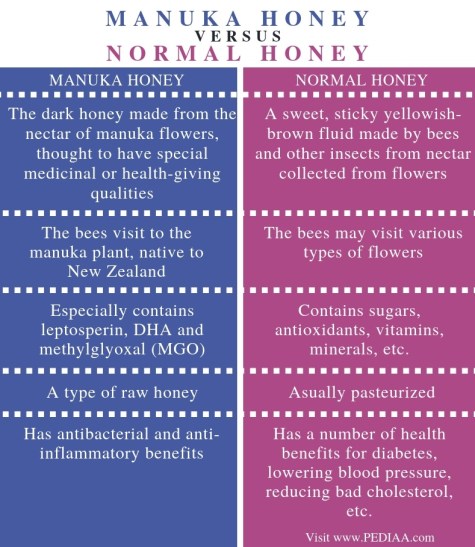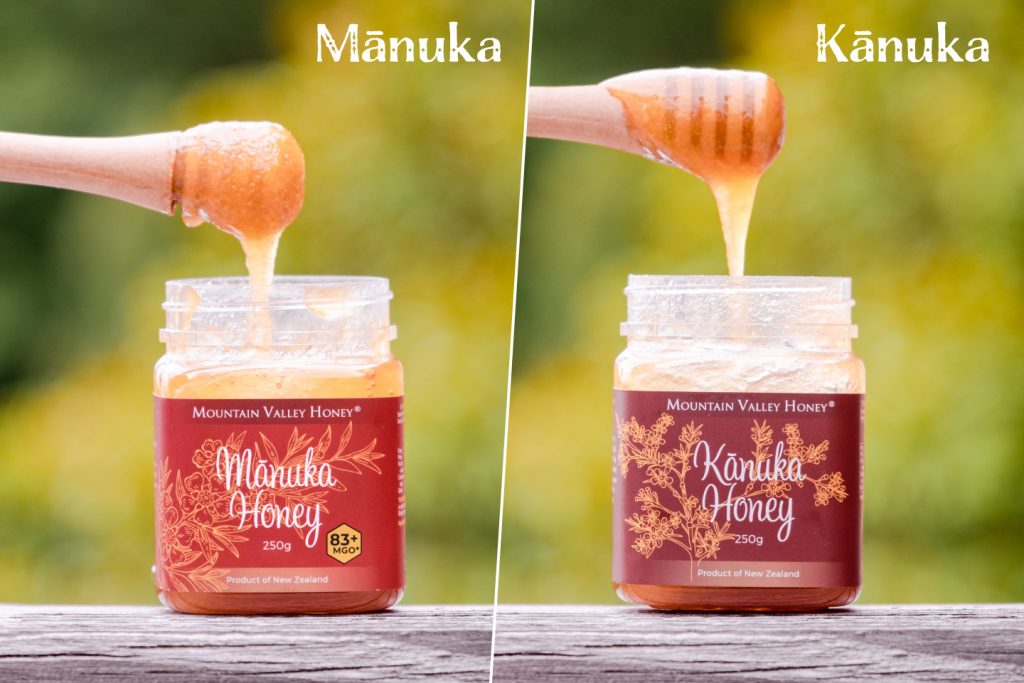
When it comes to honey, there’s a popular buzz surrounding its health benefits. But have you ever wondered if there’s a difference between Manuka honey and regular raw honey? Well, you’re in for a sweet treat because we’re about to explore the question: Is manuka honey better than raw honey? Prepare to delve into the world of this unique and highly sought-after honey variety, and discover the potential benefits it may hold for you.
Benefits of Manuka Honey
Manuka honey is a truly remarkable natural product that offers a wide range of health benefits. With its unique antibacterial properties, wound healing capabilities, digestive health support, immune system boosting abilities, and skin care properties, Manuka honey has become increasingly popular in recent years.
Antibacterial Properties
One of the key benefits of Manuka honey is its powerful antibacterial properties. It contains a natural compound called methylglyoxal (MGO) which gives it its antibacterial properties. MGO has been shown to effectively inhibit the growth of harmful bacteria, making Manuka honey an excellent natural remedy for various bacterial infections, including sore throats and skin infections.
Wound Healing
Another significant benefit of Manuka honey is its exceptional wound healing properties. Studies have shown that Manuka honey can stimulate tissue regeneration and promote wound healing, making it an ideal choice for treating burns, cuts, and other skin injuries. The honey’s high sugar content creates a moist environment that facilitates healing and prevents the formation of scabs or excessive scar tissue.
Digestive Health
Manuka honey has been found to have positive effects on digestive health. It can help soothe gastrointestinal issues such as acid reflux, stomach ulcers, and irritable bowel syndrome. The antibacterial properties of Manuka honey can also help combat harmful bacteria in the digestive system, promoting a healthy gut microbiome.
Immune System Support
Consuming Manuka honey regularly can provide a significant boost to your immune system. It contains various vitamins, minerals, and antioxidants that help strengthen the body’s defense mechanisms. Manuka honey’s antimicrobial effects can help fight off infections and support overall immune system health.
Skin Care
Manuka honey has long been valued for its ability to nourish and rejuvenate the skin. It has natural moisturizing properties that can hydrate the skin, making it look radiant and smooth. Manuka honey also exhibits anti-inflammatory properties, making it an effective treatment for skin conditions such as eczema, acne, and rosacea.
Nutritional Profile
In addition to its numerous health benefits, Manuka honey also offers a range of essential vitamins, minerals, antioxidants, carbohydrates, and protein.
Vitamins and Minerals
Manuka honey contains various vitamins and minerals essential for overall health and wellbeing. It is a good source of B vitamins, including B6, thiamin, riboflavin, and niacin. These vitamins are important for energy production, brain function, and maintaining a healthy nervous system. Manuka honey also provides small amounts of minerals such as calcium, iron, magnesium, potassium, and zinc, which are vital for various bodily functions.
Antioxidants
Manuka honey is rich in antioxidants, which play a crucial role in fighting free radicals and reducing oxidative stress in the body. Antioxidants help protect cells from damage caused by harmful molecules and may contribute to reducing the risk of chronic diseases such as heart disease and cancer. The higher the antioxidant content, the more potent the honey’s beneficial effects.
Carbohydrates and Energy
Manuka honey is a natural source of carbohydrates, providing a quick and sustained release of energy. Its high carbohydrate content makes it an excellent choice for athletes and individuals who engage in intense physical activities. Consuming Manuka honey before or during exercise can help maintain energy levels and enhance athletic performance.
Protein Content
While Manuka honey is not a significant source of protein, it does contain small amounts of amino acids, the building blocks of proteins. Protein plays a crucial role in muscle repair and growth, immune function, and overall cellular health. Incorporating Manuka honey into a balanced diet can supplement your protein intake, especially if you follow a plant-based or vegetarian diet.
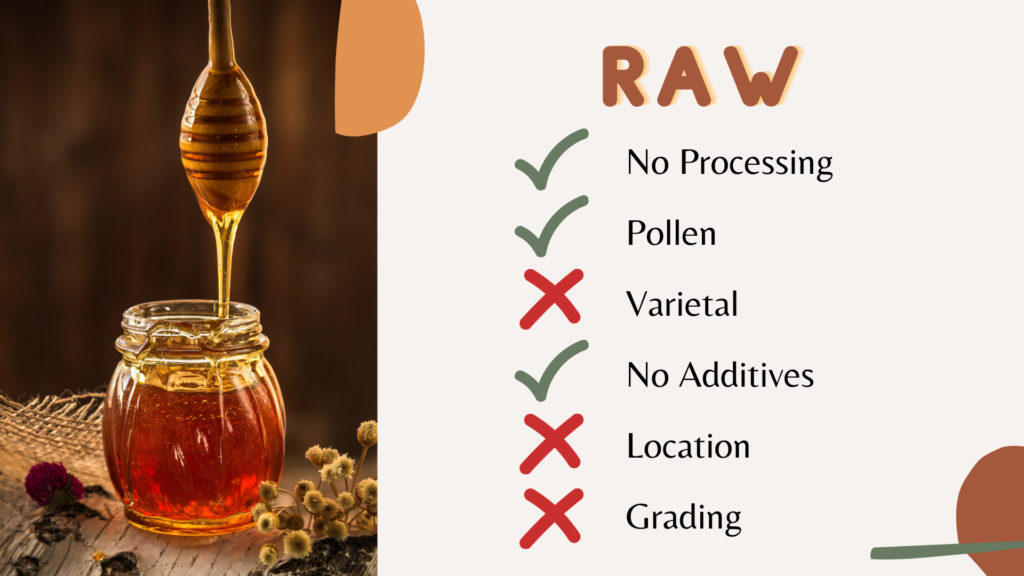
Raw Honey Benefits
Although Manuka honey offers a wide array of health benefits, it is essential to consider the advantages of raw honey as well. Like Manuka honey, raw honey comes straight from the beehive and is minimally processed, retaining its natural properties.
Local Pollens and Allergies
Raw honey is known for its potential to help alleviate seasonal allergies. By consuming honey produced by bees in your local area, you can introduce small amounts of local pollens into your system. Over time, this exposure can help reduce your sensitivity to allergens, potentially providing relief from symptoms such as runny nose, itchy eyes, and sneezing.
Enzymes and Beneficial Bacteria
Raw honey contains beneficial enzymes and bacteria that can aid digestion. The enzymes in raw honey help break down complex carbohydrates, proteins, and fats, making it easier for your body to absorb and utilize nutrients. Additionally, the presence of beneficial bacteria, such as lactobacillus and bifidobacterium, can promote a healthy gut microbiome.
Chronic Inflammation
Raw honey has been used for centuries as a natural remedy for reducing inflammation in the body. Chronic inflammation is associated with various health issues, including heart disease, diabetes, and arthritis. Certain compounds in raw honey, such as flavonoids and polyphenols, possess anti-inflammatory properties and may help alleviate inflammation-related symptoms.
Digestive Aid
Similar to Manuka honey, raw honey can provide relief for digestive issues such as acid reflux, indigestion, and upset stomach. Raw honey’s natural enzymes, combined with its antibacterial properties, can soothe the digestive system and promote a healthy gut environment. It is important to note that individuals with certain gastrointestinal conditions, such as fructose intolerance or irritable bowel syndrome, may need to be cautious when consuming honey due to its natural sugar content.
Boosts Energy Levels
Raw honey is an excellent natural energy source due to its carbohydrates and natural sugars. When consumed, these sugars are quickly absorbed into the bloodstream, providing an immediate boost of energy. As raw honey is minimally processed, it retains its natural energy-boosting properties, making it an ideal choice for a quick energy fix during busy days or intense workouts.
Manuka Honey Unique Factors
While Manuka honey and raw honey share many similarities, several unique factors set Manuka honey apart, making it highly sought after.
Manuka Honey vs. Regular Honey
Manuka honey is produced by bees that collect nectar from the flowers of the Manuka bush (Leptospermum scoparium), which is native to New Zealand and parts of Australia. Regular honey, on the other hand, is produced from various floral sources and may not possess the same level of bioactive compounds found in Manuka honey.
Methylglyoxal (MGO) Content
Manuka honey’s antibacterial properties are attributed to a compound called methylglyoxal (MGO) which naturally occurs in the nectar of Manuka flowers. The concentration of MGO in Manuka honey is an important factor in determining its potency. Manuka honey with higher MGO levels is more likely to possess stronger antibacterial properties.
UMF (Unique Manuka Factor) Rating
The Unique Manuka Factor (UMF) is a grading system that measures the unique properties and quality of Manuka honey. UMF ratings range from 0 to 30+, with higher numbers indicating a higher concentration of bioactive compounds. UMF-certified Manuka honey undergoes rigorous testing to ensure authenticity and quality.
Quality Assurance and Authentication
To ensure you are purchasing genuine Manuka honey, look for a UMF certification mark on the packaging. This mark guarantees that the honey has been independently tested for quality and purity. Additionally, purchasing Manuka honey from reputable brands or suppliers is essential to ensure you are getting a genuine and high-quality product.
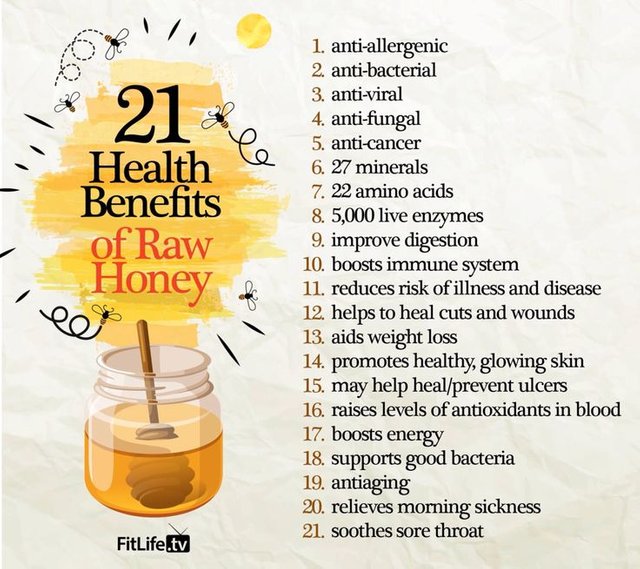
Research and Scientific Studies
Numerous research studies have explored the various health benefits of Manuka honey, providing scientific evidence to support its traditional use as a natural remedy.
Antibacterial Research
In a study published in the Journal of Antimicrobial Chemotherapy, researchers found that Manuka honey exhibited significant antibacterial activity against various multidrug-resistant bacteria, including methicillin-resistant Staphylococcus aureus (MRSA). The study concluded that Manuka honey is a promising alternative to conventional antibiotics for treating bacterial infections.
Soothing Skin Conditions
Research has shown that Manuka honey has soothing effects on various skin conditions. A study published in the Journal of the Royal Society of Medicine found that the topical application of Manuka honey reduced inflammation, redness, and swelling in patients with dermatitis. Another study published in the International Journal of Antimicrobial Agents demonstrated the effectiveness of Manuka honey in managing chronic wounds, such as leg ulcers.
Digestive Health Studies
Several studies have investigated the effects of Manuka honey on digestive health. A study published in the Journal of Agricultural and Food Chemistry found that Manuka honey exhibited significant antibacterial activity against Helicobacter pylori, a bacterium associated with gastric ulcers and stomach cancer. Another study published in the journal BMC Complementary and Alternative Medicine reported that Manuka honey improved gastrointestinal symptoms and quality of life in patients with irritable bowel syndrome (IBS).
Comparative Studies with Raw Honey
Comparative studies have been conducted to compare the medicinal properties of Manuka honey and raw honey. A study published in the European Journal of Medicinal Chemistry found that Manuka honey exhibited higher antibacterial activity against Staphylococcus aureus than raw honey. Additionally, Manuka honey was found to possess stronger anti-inflammatory properties and higher antioxidant activity.
Potential Side Effects and Risks
While Manuka honey is generally safe for consumption, there are a few potential side effects and risks to consider.
Allergic Reactions
Individuals with known allergies to honey or bee products may experience allergic reactions after consuming Manuka honey. These reactions can range from mild symptoms such as itching and hives to more severe reactions such as swelling of the lips, tongue, or throat. If you have a known allergy, it is best to consult with a healthcare professional before consuming Manuka honey.
Blood Sugar and Diabetes
Manuka honey has a relatively high sugar content, which can cause a spike in blood sugar levels when consumed in large quantities. Individuals with diabetes or those closely monitoring their blood sugar levels should use caution and monitor their glucose levels when consuming Manuka honey.
Infants and Botulism
It is important to note that infants under the age of one should not consume honey, including Manuka honey. Honey can contain spores of Clostridium botulinum, a bacterium that can cause infant botulism, a serious illness that affects the nervous system. After the age of one, a child’s digestive system is better equipped to handle these spores.
Rare Cases of Toxic Honey
In extremely rare cases, honey produced from certain floral sources may contain toxic substances. Consumption of toxic honey can lead to symptoms such as nausea, vomiting, dizziness, and even more severe complications. However, Manuka honey sourced from reputable brands and suppliers is highly unlikely to be toxic.
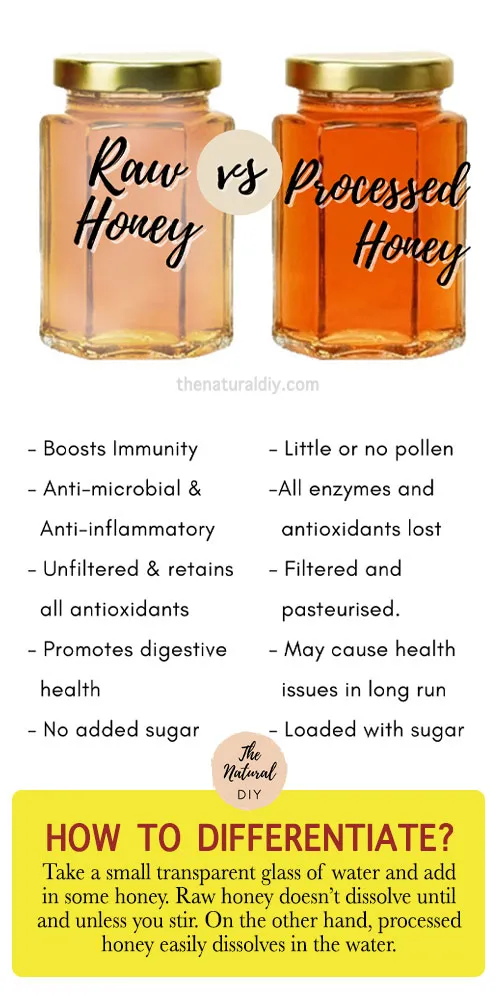
Availability and Cost
Manuka honey is known for its unique properties, which can make it less accessible and more expensive compared to regular honey. Several factors contribute to its price and availability.
Manuka Honey Price
The price of Manuka honey varies depending on factors such as the UMF rating, the country of origin, and the brand. Manuka honey with higher UMF ratings and certifications tends to be more costly due to the higher concentration of bioactive compounds. The cost of Manuka honey can be seen as an investment in its exceptional quality and health benefits.
Accessibility and Availability
Manuka honey is primarily produced in New Zealand and parts of Australia, where the Manuka bush is native. This limited geographical distribution makes it less accessible in other parts of the world. However, with the increasing demand for Manuka honey, it is becoming more widely available in specialty health stores and online platforms.
Different Grades of Manuka Honey
Manuka honey is available in different grades based on its UMF rating. The UMF grading system helps consumers determine the quality and strength of Manuka honey. A UMF rating of 10+ is the minimum recommended grade to ensure a certain level of bioactivity, while higher grades such as 20+ signify even higher potency. Choosing a Manuka honey with a UMF rating that suits your needs and budget is essential.
Consumer Preferences
When it comes to Manuka honey, consumers have their own preferences based on taste, texture, and how they use it in various applications.
Taste and Flavor
Manuka honey has a unique taste compared to regular honey. It is often described as rich, earthy, and slightly bitter, with a hint of caramel. The flavor profile may vary depending on the UMF rating, as higher-rated Manuka honey tends to have a stronger taste. Some individuals prefer the distinct flavor of Manuka honey, while others may find it an acquired taste.
Texture and Consistency
Manuka honey generally has a thick and viscous texture, which makes it easy to spread or scoop. Its consistency may vary depending on factors such as temperature and crystallization. Some individuals prefer a smooth and creamy texture, while others enjoy the crystallized form of Manuka honey, which can add a delightful crunch.
Usage in Recipes and Beverages
Manuka honey can be used in a variety of culinary applications. It can be used as a natural sweetener in beverages such as tea, coffee, and smoothies. It also adds depth and complexity to baked goods, marinades, salad dressings, and sauces. Additionally, Manuka honey’s unique flavor makes it a great topping for yogurt, oatmeal, or toast.
Consumer Reviews
Consumer reviews of Manuka honey are overwhelmingly positive, with many individuals highlighting its numerous health benefits and distinct taste. Many users have reported experiencing improved digestive health, enhanced wound healing, and overall well-being after incorporating Manuka honey into their daily routine. Consumers also appreciate the high quality and authenticity of UMF-certified Manuka honey.
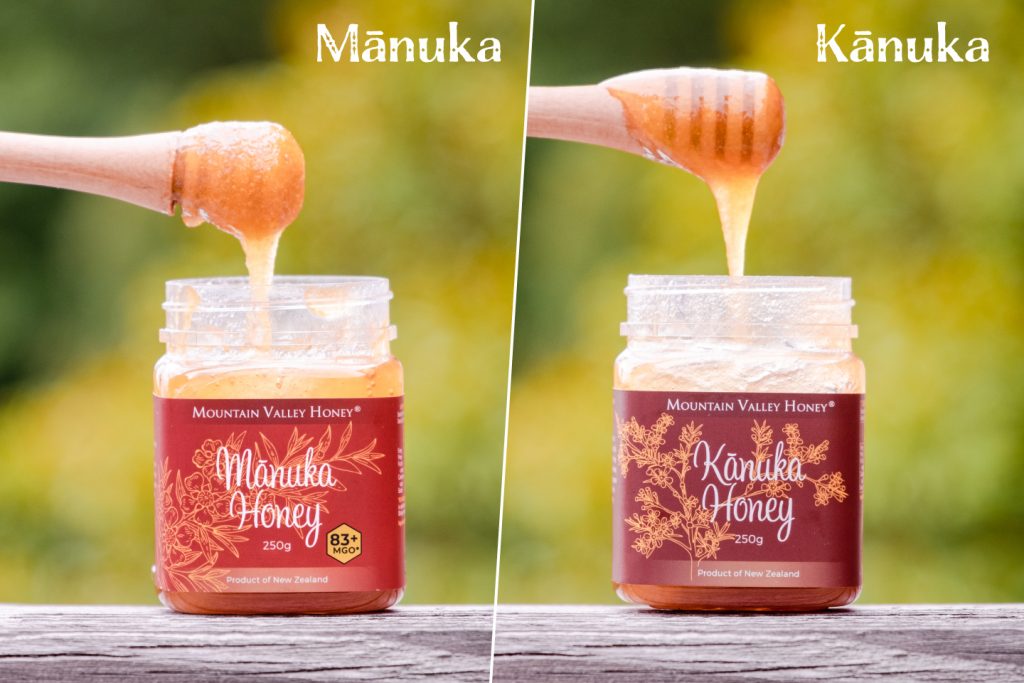
Uses and Applications
The versatile nature of Manuka honey makes it suitable for various uses and applications beyond its consumption.
Natural Remedies
Manuka honey has long been used in traditional medicine for its healing properties. It can be applied topically to treat wounds, burns, and skin conditions. Some people use it as a natural cough syrup by mixing it with warm water or herbal tea. Manuka honey can also be incorporated into homemade face masks or scrubs for skincare purposes.
Culinary Uses
Manuka honey can add a unique flavor to a wide range of dishes, both sweet and savory. It can be used as a natural sweetener in beverages, baked goods, and desserts. Manuka honey pairs well with cheese, fruits, and spices, making it a versatile ingredient in savory dishes such as glazes, dressings, and marinades.
Skin and Beauty Products
Given its skin-healing properties and natural moisturizing abilities, Manuka honey is a popular ingredient in skincare and beauty products. It is commonly found in face masks, creams, lotions, and lip balms. These products help to hydrate the skin, reduce inflammation, and promote a healthy complexion.
Alternative Medicine
Manuka honey is often used in alternative medicine practices, such as Ayurveda and traditional Chinese medicine. It is believed to have a balancing effect on the body’s energy and can be incorporated into herbal remedies or consumed as a tonic to support overall well-being.
Conclusion
In summary, Manuka honey offers a myriad of health benefits, ranging from its potent antibacterial properties to its ability to support wound healing, digestive health, and the immune system. Its unique nutritional profile, including vitamins, minerals, antioxidants, carbohydrates, and protein, makes it a valuable addition to a balanced diet. While it shares some similarities with raw honey, Manuka honey stands out due to its specific properties, such as its high MGO content and UMF rating. Numerous scientific studies support the traditional use of Manuka honey, highlighting its effectiveness in fighting bacteria, soothing skin conditions, and improving digestive health. However, it is essential to be aware of potential side effects and risks, such as allergic reactions and its impact on blood sugar levels. Manuka honey may be less accessible and more expensive compared to regular honey, but its unique taste, texture, and health benefits make it a preferred choice for many consumers. From natural remedies to culinary uses, skincare products, and alternative medicine, Manuka honey offers versatility and a range of applications. Ultimately, individual preferences and specific health concerns will determine whether Manuka honey or raw honey is the better choice for you.
